To stay out in front, the computer geeks and language inventors have some set strategies in their mind which take their businesses where they actually want .Yesterday, I read a very interesting article about how computer programs are named and I think I should share this info with my readers.
Computer languages are no more a novel thing as every other person is seen learning some kind of programming language to pursue his professional life .Even entrepreneurs are delving into this matter as now businesses seems helpless without digital interventions.
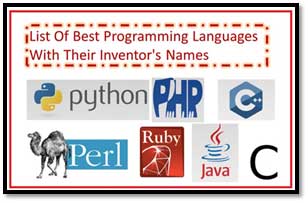
We know that a formal language is designed for digital communicators and it gives and take instructions to and from a computer. For example a Command language is used to control working of a computer. FORTRAN is considered the first of the major programming languages introduced in 1857. FORTRAN means FORmula TRANslating system. IBM has designed the language for scientific computing. After FORTRAN, a series of unlimited programing languages emerged in the digital market, each having their own specifications .The use of such languages might be understood only by techno Acers but the most amazing thing connected to these languages is their name .Yes, every programming language has a unique name which is linked with some particular thing or event.
Many names are simply acronyms denoting what the program is rendering like HTML as the Hypertext Markup Language, SQL as the Structure Query Language, etc. However, there are languages that get their name from a significant back ground.
C++
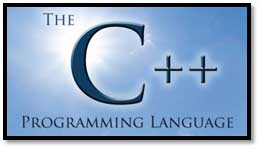
C++ was primarily named as C with Classes. Later the inventor changed it to di C++, where ++ is the syntax in C to increment a variable.
Esoteric programming languages (Esolang) are those languages which are created for fun, and to showcase their entertaining purpose weird names are given to them.
Python:
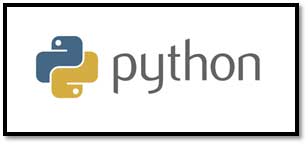
Although the symbol reflects two twisted serpents.The programming language has nothing to do with python snake; it was developed by Guido van Rossum, a Dutch programmer, who created it in 1989 during his Christmas break. The script of this language was a derivative of ABC programming language. Rossum, the developer was a Monty Python fanatic,( a British comedy group) and has kept the name after that group. It is said that Van Rossum was the script for the Monty Python’s Flying Circus and suddenly this short, unique, and creepy word hit him so he named his programming language ‘Python’.
Java
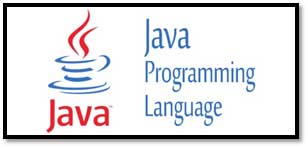
Developed in 1990sthe programming language Java was launched Sun’s Green Company. Formerly Oak was suggested for the new programing language, but Oak had already been selected as a trademark. Other shortlisted names included DNA, Silk, and Java. Java was later picked probably for the strong connection of Sun Green’s Engineers with Peet’s Coffee & Tea.
Lisp
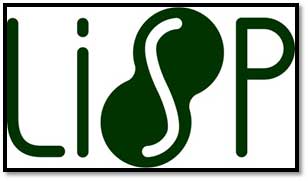
This 1958 language has no connection speech problem; it is an acronym style for List Processing. It was created by and is known as the second-oldest high-level language, still existing with a grace. Critics however associated the language’s parentheses-heavy syntax with the name and declared that Lisp stands for Lost In Stupid Parentheses.
Perl
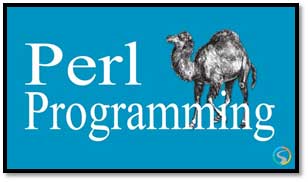
Perl was rewarded with the title “Swiss Army Chainsaw” for its flexibility. This early 80’s language was created by Larry Wall. The developers were looking for a short but meaningful name. Larry thought about his wife’s name Gloria, but then he settled for "pearl". Pearl was already a name of another programming language, - Process and Experiment Automation Real-time Language, therefore Well modified his name to "perl".
Smalltalk
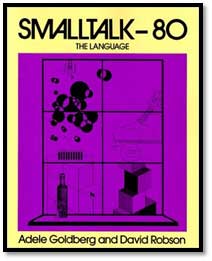
Xerox’s Palo Alto Research Center (PARC) has developed this programming language in 70’s.The language was a popular product of Alan Kays' Learning Research Group. Smalltalk is basically an object-oriented programming language. The name was said to be a revival of “Indo-European god theory” assigning god-like titles to systems.
Ruby
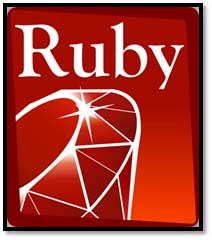
The name for Ruby precedes the code, written for the language. It was developed by Yukihiro Matsumoto, who was looking for a language with extra scripting power than Perl and more object-based foundation than Python. He took advice from his colleague Keiju Ishitsuka on an online chat and Ruby and Coral were short listed .Later Ruby was finalized.
Whitespace
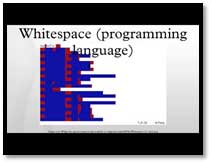
Whitespace Language was developed in 2003 through collaboration between Chris Morris and Edwin Brady in 2002. The syntax consists of whitespace characters only. Here you can play just with only tabs, spaces and linefeeds. Primarily it looks like an April Fool’s joke later Whitespace the language has become a ‘ polyglot’, a language that can be inserted within the white spaces of another programming language.
USEFUL LINK:
What is Programming Language? - Types & Examples
https://study.com/academy/lesson/what-is-programming-language-types-examples-quiz.html
Farah Hedayat








.gif)


































